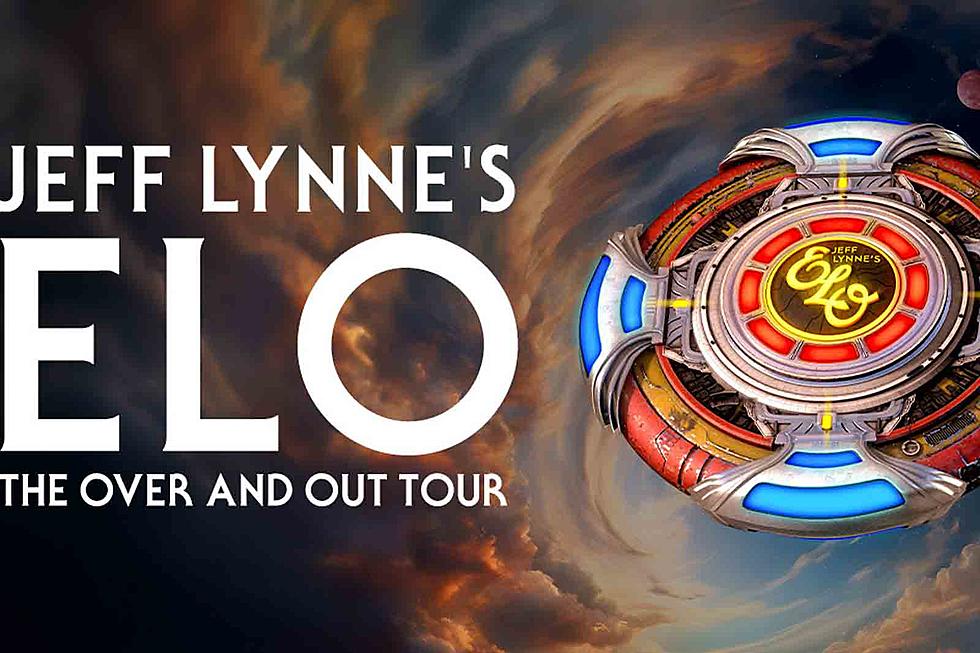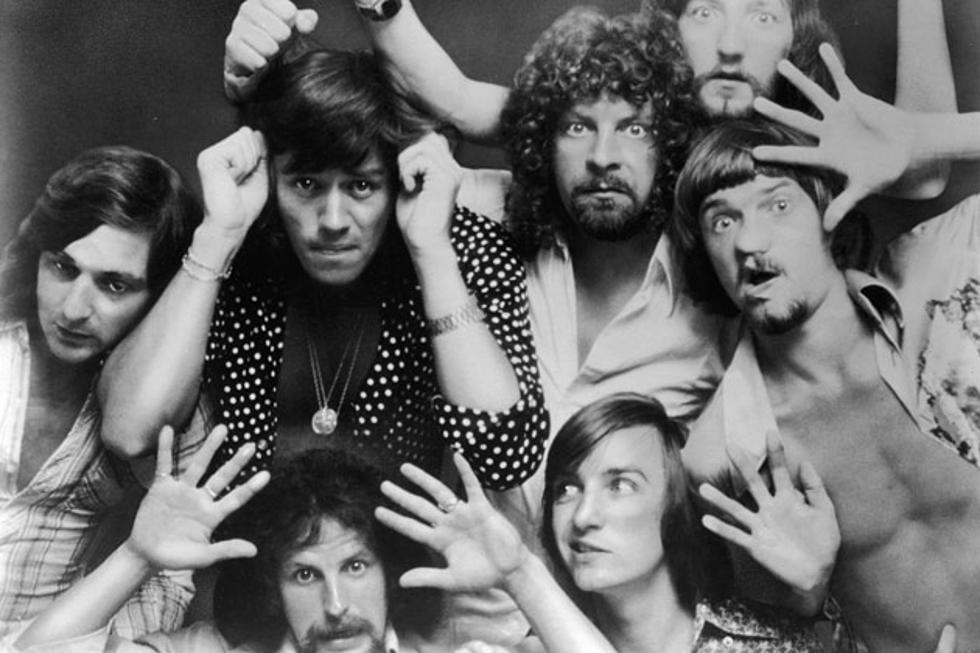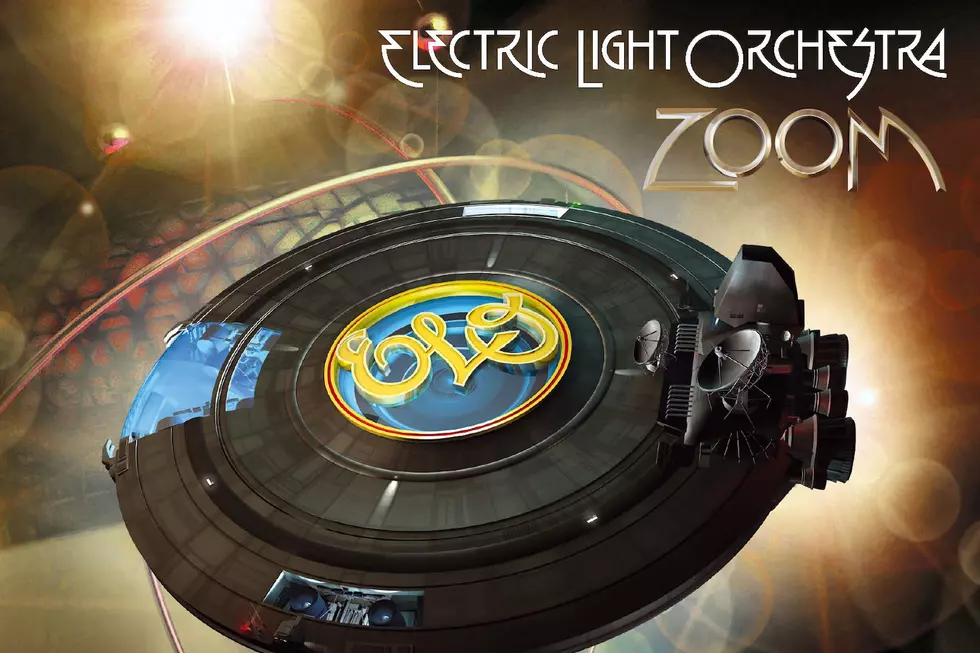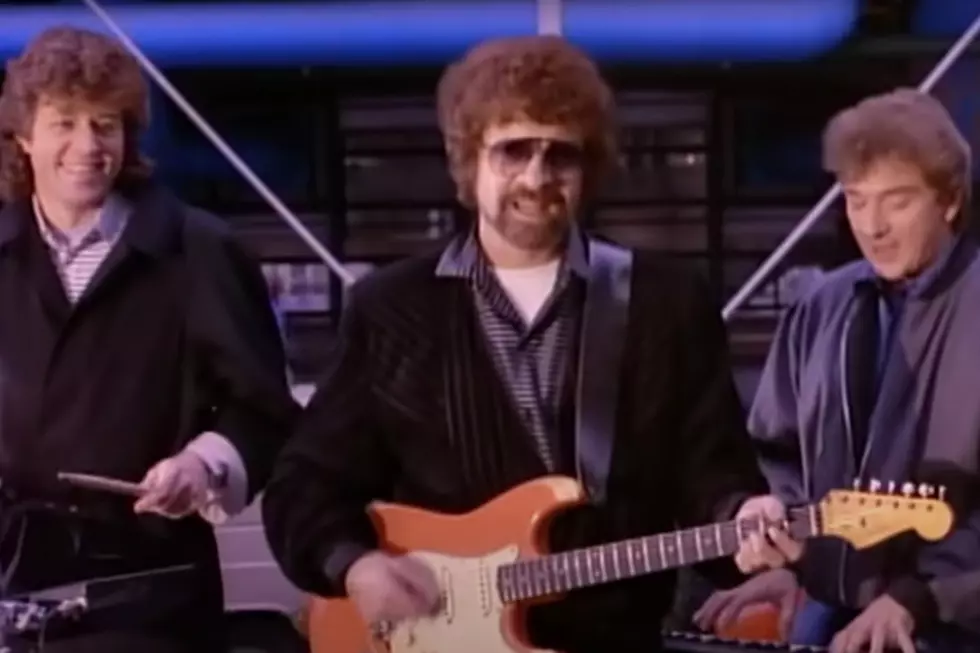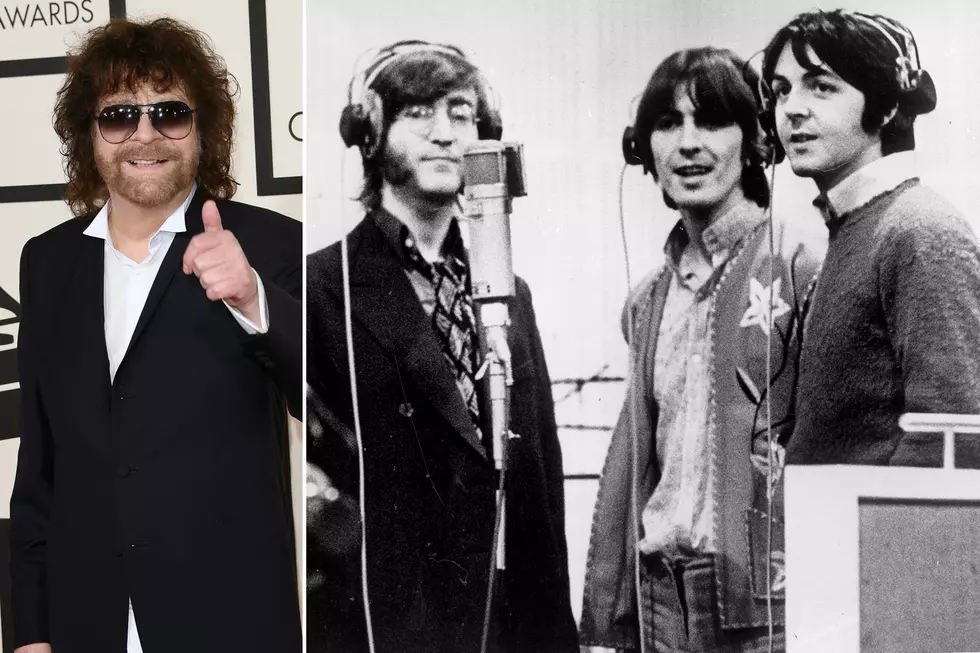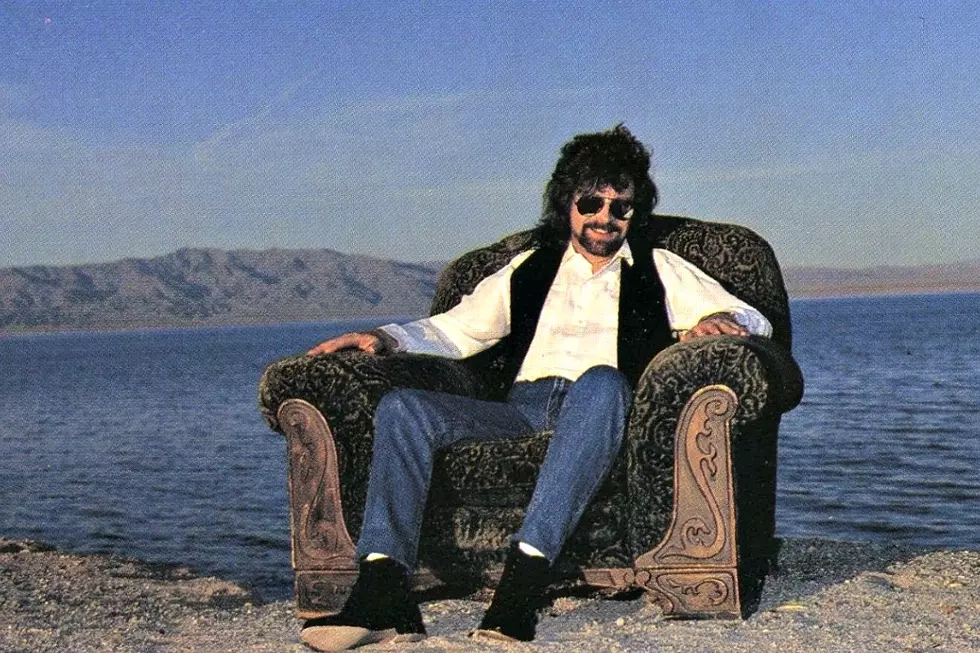
When Jeff Lynne Finally Released a Debut Solo Album, ‘Armchair Theatre’
It took Jeff Lynne quite a while to surface as a solo artist after the Electric Light Orchestra split, but he definitely wasn't resting on his laurels.
In the years following the release of ELO's swan song, 1986's Balance of Power, Lynne found himself increasingly busy as a producer for other artists. With his production work on the ELO catalog serving as a distinctive calling card, he started building a résumé behind the boards even before the band's breakup, helming a portion of Dave Edmunds' album Riff Raff in 1984. His first post-ELO production, however, had a far bigger impact.
In late 1986, shortly after ELO splintered, Lynne was tabbed by George Harrison to help shepherd his first new solo album since 1982's Gone Troppo.
Those sessions — which found Lynne producing as well as co-writing a number of tracks — would end up altering the course of his entire career. Harrison's Cloud Nine marked a substantial comeback for the former Beatles star, while placing Lynne at the nexus of a group of artists who he'd eventually join with to make a band of their own: the Traveling Wilburys.
Before all that, however, Lynne's work with Harrison scored him his first solo recording contract. "At the end of ELO, I didn't know what I wanted to do," he later admitted. "I was still playing about in my little studio — I used to have a small one upstairs — and I used to make up songs and demos for my own fun. ... And then while I was working on Cloud Nine, Warners asked me if I'd like to do an album for myself."
Warner Bros. ultimately ended up waiting years for that album, while Lynne took on a series of massively successful production gigs, starting with Tom Petty's Full Moon Fever and Roy Orbison's Mystery Girl albums.
Listen to Jeff Lynne Perform 'Every Little Thing
Both of those projects, along with Cloud Nine, spilled over into Lynne's work alongside Harrison, Petty, Orbison and Bob Dylan as the Wilburys, who released their own hit record in 1988.
"It took me all this time, because I did the Wilburys album, Tom's album and parts of Roy's," Lynne later explained. "As soon as I had some clear time, I booked my engineer for six or seven months."
By the end of ELO's run, Lynne had assumed a great deal of the vocal and instrumental responsibilities in the studio — a tradition he continued when he got down to work on his solo debut, released in the U.S. as Armchair Theatre on July 2, 1990. Unlike his increasingly synth-focused work on ELO's later output, however, Lynne made a point of keeping things relatively organic with Theatre – even if the album's tightly stacked arrangements might have made it easy to assume otherwise.
"It’s natural, all done by hand, no sequencing, no digital bits," he later insisted. "It’s made like a proper record with drums, bass, guitars, pianos, which I love to do. Because I went through all that digital period, learning how to be a typist, pushing all these buttons, and it drove me mad. That’s not music, it’s a computer thing. I’m not interested."
In the end, Armchair Theatre was sonically very much of a piece with the string of hits Lynne produced for other artists in the late '80s and early '90s. That made it something of a surprise that the album ultimately didn't do very well on the charts, stalling at No. 83 in the U.S. while spinning off a pair of modest singles in "Lift Me Up" and "Every Little Thing." He'd enjoyed massive sales with ELO and proven himself a hitmaker for others, but as a solo artist, Lynne didn't seem to have the same luck.
Thankfully, that didn't impact his production schedule or his stature in the industry. "My whole life doesn't depend on it doing well," Lynne told Rolling Stone. "The fact is, all me mates can have a copy, and they can go, 'Oh, that's a good one,' or whatever. And it is good. I'm proud of it. And if it's a success, it's a luxury. And if it's not, well, it might dent my ego a bit, but it's not a matter of life and death."
See ELO Among Rock’s Most Underrated Albums
More From Ultimate Classic Rock
